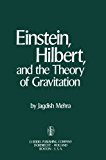The Three Kinds of Virginia HOV Exemption
This will only be of interest to my fellow citizens of Virginia.
Our state has “High Occupancy Vehicle” lanes and roads: during certain times cars are excluded unless they contain either more than one or more than two people, depending on the road. The idea is to ameliorate congestion and reduce gasoline consumption by encouraging carpooling, and has led to a few amusing side-effects, such as “slugging”.
In order to encourage the use of, presumably, more efficient “hybrid” cars, Virginia long ago exempted these vehicles from the HOV restrictions. You got a special license plate that signaled to the police that you were immune: like your own HOV diplomatic plate. We got one for our Civic Hybrid and regularly abuse I66 with its help.
The exemption is not rational. The Civic Hybrid, and other cars in its category, are simply gasoline vehicles incorporating some nifty technology, such as regenerative braking and continuously variable transmission, that make them a bit more efficient. But there are plenty of other cars on the road that get better mileage than our Civic Hybrid, but are not eligible for the HOV pass, because they’re not “Hybrids.” Decades ago you could get, for example, a diesel VW Rabbit that got 50 MPG; our Civic might get to 40 MPG on long trips without traffic jams (which means, by definition, outside the DC area).
The HOV exemption made the first generation of hybrids very popular in the area, and presumably elsewhere with similar regulations. Car makers caught on, and began to offer their behemoth SUVs in “hybrid” versions that were a tad more efficient than their similar cars without the hybrid technology. The people dutifully carpooling in the HOV lanes noticed the road getting clogged during rush hour by these faux hybrids sporting their “clean special fuel” plates, and began to grumble. The legislature began to hear them, and has been tightening the rules. Their approach is to gradually remove the exemption, road by road, by issuing a series of more restricted plates, while grandfathering in existing registrations. Actually basing the exemption on something meaningful, such as the EPA efficiency rating of the car, seems not to have occurred to them.
three different “clean special fuel” plates, and which one you get will depend on when you first registered your car. Early adopters will be allowed free reign; the next wave (beginning July 1, 2006) is banished from I95/395; and those late to the hybrid bandwagon (registering after June 30, 2011) are kicked off of I66 as well. They get the new plate shown here. It might look at first glance just like the current clean special fuel plate, but pay attention: the little Earth symbol is in the middle, instead of on the right. Should lend itself to some creative vanity plates.One thing not mentioned on the DMV website: be sure to keep your registration current. If you take a car out of service for a while and neglect to renew the registration for a few months, the DMV may retire your plate. You will then be required to get a new one, and your HOV exemption will not be grandfathered in. You will be treated as if you are registering the car for the first time, and may wind up with a less powerful exemption than you had before.
Meanwhile, the one obvious solution to the increasing traffic nightmare endured daily by our population of information workers remains unthinkable: telework.



